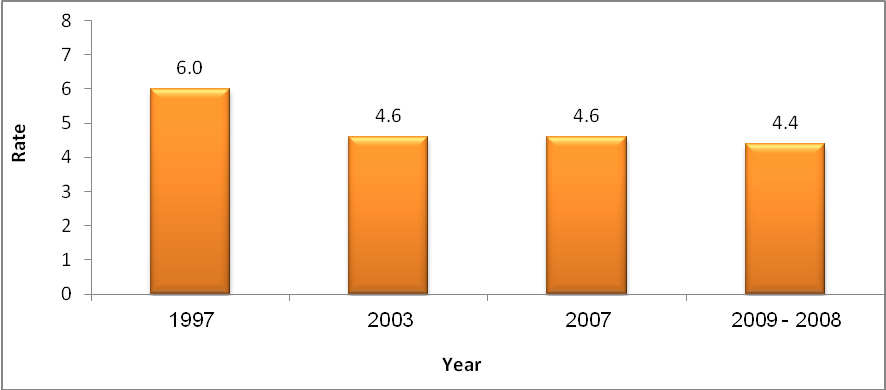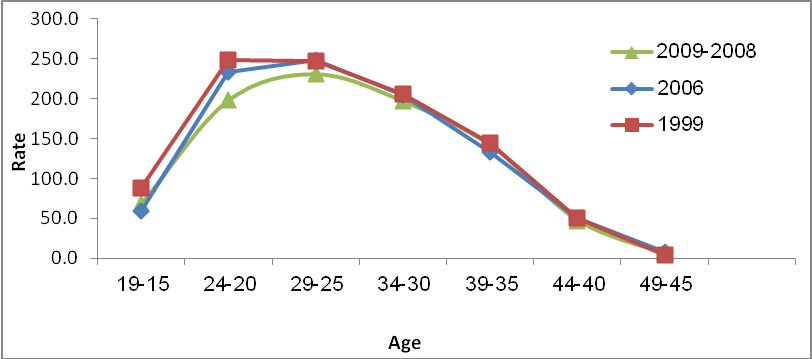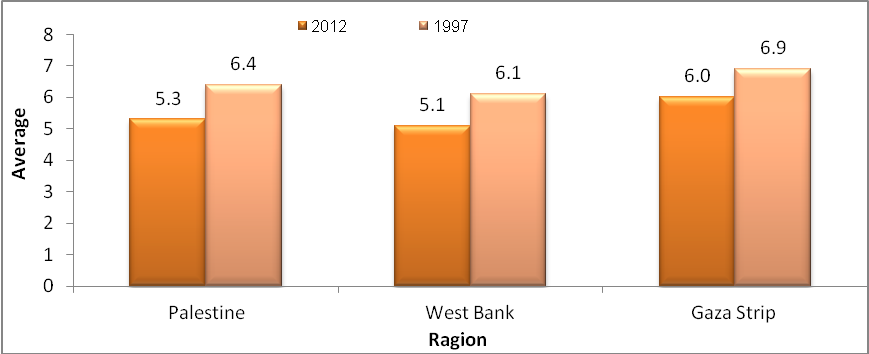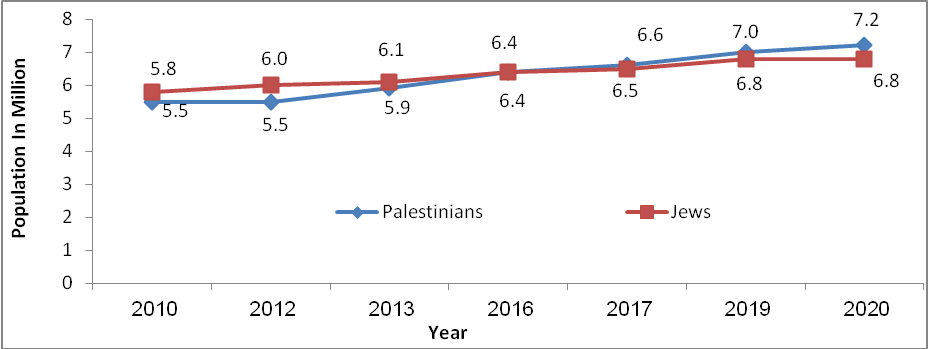Palestinian Central Bureau of Statistics (PCBS)
Palestinians at the end of 2013
The Palestinian Central Bureau of Statistics (PCBS) presents the following information about Palestinians at the end of 2013
|
Increase in world population of Palestinian |
The projected number of Palestinians in the world is 11.8 million, of whom 4.5 million are in Palestine, 1.4 million in Israel, 5.2 million in Arab countries and around 665 thousand in foreign countries.
|
More than one-third of population in Gaza Strip |
The projected number of Palestinians living in Palestine at the end of 2013 is 4.5 million: around 2.8 million reside in the West Bank and 1.7 million in Gaza Strip. Palestinian refugees make up 44.2% of the Palestinian population in Palestine: 41.2% of them in the West Bank and 58.8% in Gaza Strip.
Decline in fertility rate |
The total fertility rate declined during 2008-2009 to 4.4 births compared with 6.0 births in 1997. In Gaza Strip the rate was 5.2 births compared to 4.0 births in the West Bank during 2008-2009.
Total Fertility Rate in Palestine, Selected Years

There has been a decline in the detailed fertility rate, particularly in the early reproductive years (15-24 years).
Age-Specific Fertility Rates in Palestine, Selected Years

Decrease in average household size |
The average household size in Palestine was 5.3 persons in 2012 compared to 6.4 in 1997: 5.1 persons in the West Bank and 6.0 persons in Gaza Strip.
Average Household Size in Palestine by Region, 1997, 2012

Falling crude birth and mortality rate |
The crude birth rate is 32.6 births for every 1000 of population: 29.7 in the West Bank compared to 37.1 in Gaza Strip. The rate is expected to decline to 31.9 by 2015. The crude death rate is 3.8 deaths for every 1000 of population: 4.0 in the West Bank compared to 3.7 in Gaza Strip. The rate is expected to decline to 3.6 by 2015.
High fertility rate among Palestinians in Jordan |
The total fertility rate for Palestinians living in Jordan was 3.3 births in 2010 compared to 2.5 in Syria in 2010 and 2.8 in Lebanon in 2011.
Selected Demographic Indicators by Country of Residence, Selected Years
|
Country of Residence |
Average Household Size |
Total Fertility Rate |
|
|
||
|
2010 |
|
|
|
Jordan |
4.8 |
3.3 |
|
Syria |
4.1 |
2.5 |
|
2011 |
|
|
|
Lebanon |
4.4 |
2.8 |
|
Youthful Palestinian population in Israel |
The number of Palestinians living in Israel is 1.4 million, of whom about 36.1% are aged below 15 years compared to 4.1% aged 65 years and above.
|
Higher fertility rate among Palestinians in Israel than among Jews |
The total fertility rate in 2012 among Palestinians living in Israel was 3.3 births compared to 3.0 births among Jews. The average Palestinian household size in Israel is 4.8 persons. The crude birth rate of Palestinians in Israel exceeded 24.8 births for every 1000 of population.
|
The number of Palestinians in historical Palestine will exceed the number of Jews over time |
The number of Palestinians in historical Palestine totaled 5.9 million at the end of 2013. There were 6.0 million Jews at the end of 2012 according to estimates by the Israeli Central Bureau of Statistics and the number is expected to reach 6.1 million Jews by the end of 2013. The number of Palestinians and Jews will total about 6.4 million each by the end of 2016 provided that current growth rates remain constant. However, the number of Palestinians in historical Palestine will total 7.2 million compared to 6.9 Jews by the end of 2020.
Number of Palestinian and Jews living in Historical Palestine

 عربي
عربي